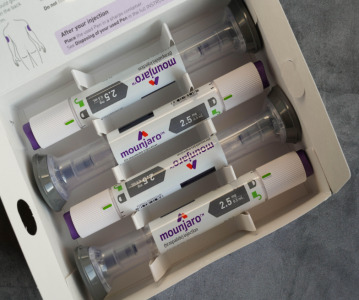Positive Phase III results of Genentech’s investigational medicine Ocrevus

Ocrevus is the first and only investigational medicine to show superior efficacy versus comparators in both relapsing and primary progressive multiple sclerosis in clinical studies.
Genentech has announced that data from three Phase III studies of its investigational medicine Ocrevus (ocrelizumab) – the OPERA I and OPERA II studies in relapsing multiple sclerosis (RMS) and the ORATORIO study in primary progressive multiple sclerosis (PPMS) – were published in the 21 December 2016 online issue of the New England Journal of Medicine (NEJM).
Data from the Ocrevus Phase III studies showed consistent and clinically meaningful reductions in major markers of disease activity and progression compared with Rebif (interferon beta-1a) in RMS and with placebo in PPMS. The primary endpoint was met in all three studies, which includes relative reduction of annualized relapse rate in the RMS studies and relative reduction in the progression of clinical disability sustained for at least 12 weeks in the PPMS study. Key secondary endpoints in all three studies were also met, including multiple measures of disability progression and brain lesion activity.
“These publications that indicate that B cells play a central role in MS are the result of a longstanding collaboration between the scientific community and industry for the benefit of people with MS,” said Stephen Hauser, Chair of the Scientific Steering Committee of the OPERA studies, Director of the Weill Institute for Neurosciences and Chair of the Department of Neurology at the University of California, San Francisco. “In the OPERA I and OPERA II RMS studies, Ocrevus consistently and significantly reduced disease activity and disability progression compared with a standard-of-care high-dose interferon while demonstrating a favourable safety profile. The consistency of these pioneering data, the effect seen in these clinical studies and the favourable safety profile may support treating MS earlier with a high-efficacy disease-modifying medicine.”
Data from two identical studies (OPERA I and OPERA II) in RMS showed Ocrevus was superior to high-dose Rebif (interferon beta-1a), a well-established MS therapy, in reducing three major markers of disease activity: relapses (primary endpoint), disability progression, brain lesion activity over the two-year controlled treatment period.
In a separate PPMS study (ORATORIO), Ocrevus significantly reduced the risk of confirmed disability progression sustained for at least 12 weeks (primary endpoint) and 24 weeks (a key secondary endpoint) compared with placebo. Ocrevus treatment was also superior to placebo on other key measures of disease progression in PPMS patients including the time required to walk 25 feet, the volume of chronic brain lesions and brain volume loss.
“Ocrevus is the first and only investigational medicine to significantly reduce the progression of physical disability in primary progressive MS in a large Phase III study,” said Xavier Montalban, Chair of the Scientific Steering Committee of the ORATORIO study and Professor of Neurology and Neuroimmunology at Vall d’Hebron University Hospital, Research Institute and Cemcat, Barcelona, Spain. “Over the last decade, other molecules have tried and failed to demonstrate efficacy for PPMS, so the positive results for Ocrevus mark an important step in our understanding of this highly disabling form of the disease.”
The Ocrevus safety profile was evaluated in the three Phase III studies. In the RMS studies, the proportion of patients with serious adverse events and serious infections was similar between the Ocrevus and interferon beta-1a treatment groups. In the PPMS study, the proportion of patients with adverse events and serious adverse events was similar between the Ocrevus and placebo treatment groups. Safety analyses continue in the open-label extension studies in both RMS and PPMS.
Marketing applications for OcrevusS, submitted for RMS and PPMS, have been accepted and are currently under review by the EMA and the FDA.
Related News
-
News PSCI Welcomes Delpharm, Samsung Biologics, and Suven as First Supplier Partners
The pharmaceutical industry continues to evolve with an increasing focus on responsible sourcing, sustainability, and collaboration across the supply chain. Under a new model to recognise suppliers within the pharmaceutical and healthcare industry that... -
News Drug prices agreed upon as part of the US Inflation Reduction Act
The Inflation Reduction Act brought into constitution by the Biden administation in 2022, which proposed a drug price negotiation between the government and pharmaceutical companies, has reached it's first agreement. -
News Eisai Alzheimer’s drug authorised in UK but still faces obstacles
In partnership with BioArctic AB, pharmaceutical company Eisai has been granted Marketing Authorisation by the Medicines and Healthcare products Regulatory Agency (MHRA) for its Alzheimer’s disease drug product Leqembi. -
News Eli Lilly's weight loss drugs removed from the FDA's shortage list
The US FDA have recently updated their drug shortage list. The recently released list shows that all dosage forms of Eli Lilly's weight-loss drug Zepbound and their diabetes drug Mounjaro are now available. -
News Global advancements in the diagnosis and treatment of rare diseases: Rare Disease Day 2024
Rare Diseases Day is celebrated on the 29th February 2024 and represents the plight of rare disease patients to gain diagnosis and access to suitable treatment. -
News Pharmaceutical industry supports COP28 health stance in joint statement
As COP28 takes place over this week in Dubai, UAE, several bodies in the pharmaceutical and health industries have come together to announce support of key movements in sustainability in the sector, and to recognise sustainability as a health issue.&nb... -
News Biden backs Cold-War measures to shore-up medical supply chains
In a recent strategy to combat rising inflation and the cost of living crisis, President Joe Biden has invoked a Cold War-era act to increase investment in a selection of medicines and supplies. -
News CPHI Podcast Series: What does the changing US Pharma market mean for industry and patients alike?
In this week's episode of the CPHI Podcast Series Lucy Chard, Digital Editor for CPHI Online is joined by James Manser to discuss the political and market changes in the US pharma field.
Position your company at the heart of the global Pharma industry with a CPHI Online membership
-
Your products and solutions visible to thousands of visitors within the largest Pharma marketplace
-
Generate high-quality, engaged leads for your business, all year round
-
Promote your business as the industry’s thought-leader by hosting your reports, brochures and videos within your profile
-
Your company’s profile boosted at all participating CPHI events
-
An easy-to-use platform with a detailed dashboard showing your leads and performance


.png)




